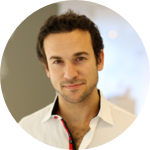About This Project
One month after the train disaster in East Palestine, OH, we visited the site on March 2, 2023 to take environmental samples. The goal of this project is to sequence these samples and create a publicly accessible resource for biologists who want to study the impacts of an acute dose of toxic chemicals which include plastic precursors.
We will ask, which species survive and what tools of bio-resilience might we discover? What adaptations and proteins might we see from the data?
Ask the Scientists
Join The DiscussionWhat is the context of this research?
There is significant research done on the main three unwanted chemicals in the atmosphere: CO2, CH4 and N2O. However, there are significantly less orchestrated, experimental efforts seeking to understand the biological harms and responses to the "long tail" of anthropogenic molecules. Pollution is under-appreciated relative to impact in translational biotech (see thesis in blog) and there is an opportunity to increase engagement on pollution in the bioengineering community.
The spirit of this project is a mix of climate biotech, environmental justice, machine learning and citizen science.
What is the significance of this project?
Taking biological samples in the middle of a toxic site where tankers full of vinyl chloride were exploded can help to determine the potential health risks to people and the environment. The awful event in East Palestine, OH, is an opportunity to understand the microbial ecology and perhaps even protein toolkits, for responding to the plastic precursor molecules (train manifest) that were combusted in early February 2022.
Microbes capable of metabolizing polyvinyl chloride (PVC) have been isolated recently (Zhang 2022) and there was a 2018 NSF grant studying PVC degradation in contaminated systems. This is a unique opportunity to study a snapshot of the microbial activity within weeks of the ground zero event relative to the baseline a nearby, upstream spring.
What are the goals of the project?
The goal is to create an accessible resource to engage more bioengineers into bio-resilience and remediation. We have collected samples for both biological (omics) and chemical analysis (water geohydrochemistry) by a person well-experienced with difficult sample acquisition.
The goal is also to answer big questions: can we identify novel microorganisms that degrade toxic chemicals, can we monitor the change in the microbial community, can we assess additional health risks to the human population, and can we gain insight into new bioremediation approaches (both for the environmental and human health).
In this case, we know we have the samples, we know there are organizations that can reliably do the sequencing, we just need to raise matching funds to support.
Budget
Homeworld Collective is a 501(c)(3) that covered the costs for the field work and is happy to host the resulting data publicly. However, metagenomic library preparation and sequencing is quite expensive. We seeks financial support to directly cover the material cost of the sequencing.
In addition, the data processing and cleaning is best done by experienced hands. The Two Frontiers Project is a team of experts of environmental sampling and genetic data processing. While raw genomic files are useful, pre-processing steps (eg, cleaning up artifacts) make the data much more useful to the broader community. Additionally, making an initial analysis of the data will be helpful for publicly sharing what we can see in this data, which may encourage more people to engage with this resource.
Endorsed by
 Project Timeline
Project Timeline
We have extracted the RNA/DNA and can send the samples off for processing immediately.
Jun 01, 2024
Complete sequencing of the 10-15 samples (pending quality)
Jul 03, 2024
Project Launched
Sep 02, 2024
Publish all data on Zenodo or similar data repository
Meet the Team
Team Bio
It was a two person expedition team that have already taken the samples in the still-toxic. Riley Drake has years of unique experiences going to extreme places to take microbial samples. Dan was, at best, the sous chef in the field but can put his background in data engineering and community organization to use in the transmission and publication of this resulting dataset.
Braden Tierney is the founder of Two Frontiers Project, which does excellent best molecular discovery expeditions.
Daniel Goodwin
My mission is to see synthetic biology reach its industrial potential of creating atomically precise, infinitely scalable tools that define the next era of physical technology.
I am the Founding co-Director of Homeworld Collective with my dear friend Paul Reginato. Homeworld exists to develop the field of climate biotech into a hyperproductive community.
I post essays and explore ideas in my personal blog Punk Rock Bio.
Lab Notes
Nothing posted yet.
Additional Information
Project Backers
- 3Backers
- 90%Funded
- $8,020Total Donations
- $2,673.33Average Donation

